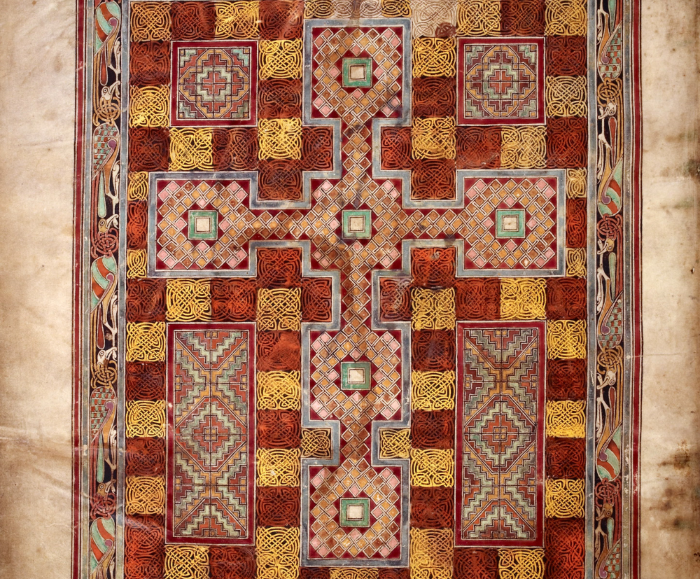Clare Lees, Director of the Institute of English Studies, Professor of Medieval Literature
In 2013, I worked with a group of poets associated with the Newcastle Centre for Literary Arts, commissioned to respond to the ‘return’ of the great early medieval manuscript, the Lindisfarne Gospels, to Durham Cathedral. The Gospels went back to their modern home, the British Library, a few months later.
In 2013, however, we went to Lindisfarne for a day on a mini bus. An account of what happened on this trip is available for the next couple of weeks as episode 3 of Poetry Extra, curated by the poet Daljit Nagra for BBC Sounds.
The radio programme, Lindisfarne: Poetry in Progress, was first broadcast by the BBC in 2013, a second time in 2018, and again a third time now, May 2020, during the public health emergency. The story of poetic responses to this remarkable early medieval book and the monastic community on Lindisfarne with which it is associated has struck a chord. You can watch Kate Sweeney’s film, Antiphonal, and hear some of the poetry here.
I was one of two medievalists on that poetry bus in 2013 – the other was Dr Carl Kears, Lecturer in Early Medieval Literature at King’s College London, then a postgraduate researcher. Carl was working on the Old English poetic anthology, the Junius manuscript. I was developing a programme of arts activities responding to the legacy of St Columba, commissioned for the 2013 UK City of Culture, Derry-Londonderry (the city with two names long associated with Columba or Colm Cille). My colleague, Professor Michelle Brown, that great expert in early medieval manuscripts, was also a member of Colm Cille’s Spiral, as we called it. What I learned in 2013 fed into my reflections on The Contemporary Medieval in Practice (2019), co-authored with Gillian R. Overing.
My interest in the Lindisfarne Gospels spans my entire career as undergraduate, postgraduate, teacher and researcher. I’m fascinated by its art, its scripts, and its carpet pages – those great interlaced pages. Early medieval manuscripts are puzzle books; they invite and reward response. What is particularly rewarding to me is sharing my fascination with others – students, researchers, poets, artists. Studying medieval manuscripts now can be a form of time-travel, a scholarly discipline, and an artistic practice.
Take a look at the palaeography and manuscript resources on our Palaeography Online page, including more blog posts, a transcription challenge, lectures and recordings.

